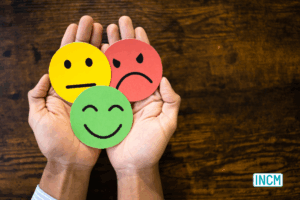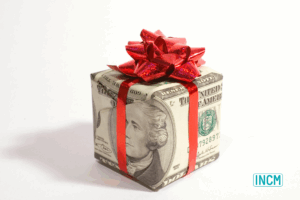Within the week, the United States and Canada will have celebrated their historical political autonomy from rulers through Canada Day and Independence Day.
While we are certainly grateful for the freedoms and liberties we do have, which were achieved through the sacrifices of many, from a spiritual perspective, I am also thinking deeply about the need for more freedom in our hearts, souls, and minds.
I have been struck by this question: what does freedom look like in the Kingdom of God?
Let me share with you how I got to this place. In today’s culture, so distantly attached from my own country’s liberation from foreign oppression, freedom has come to mean something very different.
Freedom has become individualized and deeply personal. In this case, freedom could be more clearly defined as “the power or right to act, speak, or think as one wants without hindrance or restraint.”
It may seem as though freedom means there are no boundaries and that any behavior, action, or attitude is completely permissible. Freedom has no limitation, and it means there are no consequences.
But as I look at Scripture, particularly the words of Paul, freedom in the Kingdom of God comes from a limitless source for a particular purpose. I’ll explain. In Galatians 5:1, Paul wrote, “It is for freedom that Christ has set us free. Stand firm, then, and do not let yourselves be burdened again by a yoke of slavery.”
Paul is writing about a very different type of freedom, not external freedom from the bondage of a physical oppressor, but freedom from sin – the spiritual reality of separation from God – through Jesus. It is a deeply internal, transformational experience, where we were once enslaved to sin, and now have the freedom to live fully in the presence of God.
This freedom could be seen as a license to sin, as “love covers a multitude of sins” (1 Peter 4:8). However, we also see in Scripture that this was never the intent of freedom.
The purpose of freedom in the Kingdom of God was to release God’s people to do God’s work in righteousness and faithfulness through the power of the Holy Spirit.
The limitless source of freedom found in God has boundaries but does not come with oppression. By living in God’s covenantal love through obedience to His law, we give up some behaviors, attitudes, or ways of speaking, but we do not give up our freedom to be fully alive in Christ.
It allows us to live and move and have our being as people of the Kingdom in order to fully reflect the image of God and walk in lockstep with the Holy Spirit. This shows the world another way, the way it was always meant to be.
By living within the boundaries of God’s freedom, then, we express the ultimate freedom that anyone could have. And living in God’s freedom allows us to be unafraid of whatever may come at us because nothing can separate us from this freedom which is only found in Jesus.
As leaders, many of us have grappled with the complexities of modern culture and have tried to make the practices of the day fit within the context of God’s way. However, these two ways are distinctly different. And rightly so. God’s Kingdom is unlike anything else that exists on earth, it is different, its people are different, and its freedom looks different.
I invite you, leader, to reflect on the freedom that God has given you through Jesus, and has empowered you to live out through the Holy Spirit. His Spirit will guide you to do things you might have never thought you could do. And using your gifts in the Kingdom, despite barriers internal or external, show what freedom in Christ can do through you.





